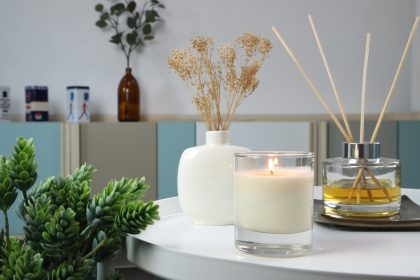When thinking about hair care and grooming, nose hair is often at the bottom of the list. Many consider it to be a nuisance that needs constant trimming and hiding, but little do we realize how critical this seemingly insignificant hair is to our health. The truth is, those tiny strands serve a significant function. Far from being an embarrassing inconvenience, nose hair is nature’s way of providing an essential line of defense and promoting overall health and well-being.
In a world obsessed with looking polished and perfect, it’s time to understand why having hair in your nostrils is actually beneficial and how it plays an important role in filtering, moisturizing and protecting your body from harm.
The role of nose hair as a natural filter
The air we breathe is full of particles, allergens, pollutants and harmful bacteria. When you take a breath, your body doesn’t just inhale pure oxygen; it’s pulling in everything that’s floating around. Nose hair plays a vital role in filtering out those unwanted particles. The tiny hairs in your nostrils — called vibrissae — act as a filter for your respiratory system.
When you breathe through your nose, the vibrissae catch and trap large particles before they can make their way into your lungs. These can include pollen, dust, smoke and other airborne irritants. This natural filtration system significantly reduces the likelihood of these irritants entering your lungs and causing respiratory issues — making your nose hairs your first line of defense against air pollution and allergens.
How nose hair prevents respiratory illness
Imagine the consequences of constantly inhaling unfiltered air filled with harmful particles. Without nose hair, our lungs would be more exposed to bacteria, pollutants and other harmful substances that can lead to illnesses like bronchitis, pneumonia and asthma.
Research has shown that people with less nasal hair may be more susceptible to airborne infections and allergens — such as hay fever. The more hair present in your nostrils, the better it can trap and prevent harmful substances from reaching your respiratory tract. In many ways, nose hair is like having a built-in health protector — something that not only provides a natural barrier but also contributes to your overall immunity against respiratory diseases.
Humidifying and warming the air we breathe
Another little-known but crucial benefit of nose hair is its role in regulating the quality of the air before it enters your lungs. The inner nose hairs work in tandem with mucus to warm and humidify the air. This process ensures that the air you breathe is at an appropriate temperature and moisture level before it reaches your lungs.
This is particularly important when you are in cold or dry environments. Breathing in dry air can irritate the respiratory system — causing discomfort and potentially leading to respiratory infections. However, when you have nose hair, it helps to trap moisture — allowing the air to be humidified as it passes through your nasal passage — making it more comfortable and safer to breathe.
Nose hair and the body’s defense mechanism
Nose hairs serve as part of a sophisticated health defense system. If particles bypass the vibrissae, they encounter mucus further up the nasal passage. The mucus traps smaller particles that slip past the nose hair, and tiny cilia — microscopic hair-like structures inside your nose — move that mucus down the throat where it can be expelled or swallowed.
This multi-layered defense mechanism shows how vital nose hair is to our overall immune system. Removing or overly trimming nose hair can compromise this natural filtering process — leaving you more vulnerable to airborne pathogens and respiratory illnesses.
How nose hair affects allergies
For those who suffer from allergies, nose hair might actually be their best friend. It acts as a natural allergen blocker by trapping common allergy triggers such as pollen, mold spores and pet dander. Without this hair barrier, these particles would make their way deeper into your respiratory system, causing uncomfortable symptoms like sneezing, watery eyes or even asthma attacks.
While it’s easy to blame nasal hair for collecting allergens, it’s important to realize that it’s also stopping those allergens from traveling deeper into the body and potentially causing more severe allergic reactions. Maintaining healthy nose hair helps to minimize the symptoms of common allergies and improves overall breathing quality.
Understanding the downside of over-trimming nose hair
Many people are tempted to trim their nose hair for cosmetic reasons. However, over-trimming can do more harm than good. Removing too much nose hair compromises your body’s ability to filter and humidify the air — making you more susceptible to infections and respiratory issues. Over-trimming also increases the chances of nosebleeds — as it leaves the nasal membranes more exposed and sensitive.
A small, controlled trim to maintain a tidy appearance is fine, but it’s best to let the nose hair do its job. Embrace it as part of your body’s natural defense mechanism and resist the urge to over-groom for the sake of aesthetics.
The connection between nose hair and smell
While not widely known, nose hair also plays a role in our sense of smell. The vibrissae act as a channel to funnel air toward the olfactory sensors — the receptors in your nose responsible for detecting odors — This means that nose hair is not only helping to protect your lungs but is also enhancing your ability to perceive scents in your environment.
Having a healthy amount of nose hair contributes to the proper functioning of your olfactory system. Over-trimming nose hair may disrupt the airflow and reduce the sensitivity of your sense of smell. So, if you’re someone who enjoys the smell of fresh flowers, baked bread or your favorite perfume, nose hair is helping make those sensory experiences possible.
The evolutionary purpose of nose hair
Ever wonder why we have nose hair in the first place? It’s an evolutionary feature designed for our protection. Long before air purifiers and face masks, our bodies relied on natural defenses against environmental dangers. The presence of nose hair ensured that harmful substances were filtered out before they could harm us.
Evolution has given us nose hair to protect our respiratory systems from damage. In ancient times, when humans faced dusty and harsh environments, nose hair was crucial for survival. While our environment has changed over time, the need for protection against air pollutants and allergens remains — and so does the importance of nose hair.
Embracing nose hair as a protective asset
For something so small and easily overlooked, nose hair plays an undeniably important role in keeping us healthy. It acts as a natural filter, a humidifier, a contributor to our sense of smell and a first line of defense against allergens and harmful particles. While maintaining a groomed appearance is understandable, it’s important to remember that nose hair is there for a reason — protecting your respiratory system and supporting your overall health.
So, the next time you’re about to reach for the trimmer, consider the benefits of keeping your nose hair intact. It may not be the most glamorous part of your grooming routine, but it’s certainly one of the most beneficial. Embracing nose hair is a step toward appreciating the small but vital ways our bodies work to keep us healthy and safe.
Remember, that little hair in your nostrils is more than just an annoyance — it’s a life-saver that deserves some recognition.
This story was created using AI technology.











